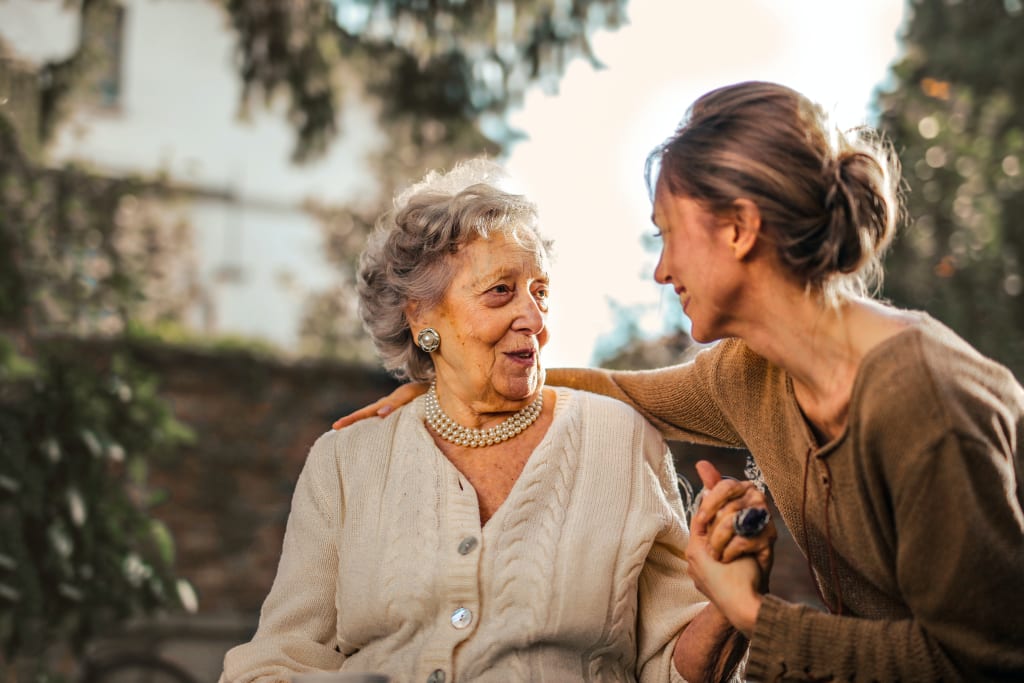HOW TO BECOME A CAREGIVER FOR A DISABLED FAMILY MEMBER AND LOVE ONES
how to become a caregiver for a disabled family member and love ones

Being a caregiver for a disabled family member or loved one can be a rewarding and fulfilling experience, but it can also be challenging and overwhelming at times. It is important to be prepared for the responsibilities and duties that come with being a caregiver and to understand the needs of the person you are caring for. Here are some steps to help you become a caregiver for a disabled family member or loved one:
Educate yourself about the disability
The first step in becoming a caregiver is to learn as much as you can about the disability that your family member or loved one is living with. This includes understanding the physical and emotional challenges that they may face and learning about any treatments or therapies that may be necessary. It is also important to understand the rights and resources available to individuals with disabilities and to stay up-to-date on any advances in treatment or support.
Assess the needs of the person you are caring for
Before you become a caregiver, it is important to assess the needs of the person you will be caring for. This includes both their physical and emotional needs, as well as any necessary medical treatments or therapies. You should also consider the person's daily routine and any activities that they enjoy or need assistance with.
Create a care plan
Once you have assessed the needs of the person you will be caring for, you should create a care plan to outline how you will meet those needs. This should include a schedule for daily tasks, such as meal preparation, hygiene, and medication management, as well as any necessary medical treatments or therapies. It is important to involve the person you are caring for in the creation of the care plan, as well as any other family members or caregivers who will be involved in the care.
Find resources and support
Caring for a disabled family member or loved one can be overwhelming at times, and it is important to have resources and support to help you manage your responsibilities. This may include seeking out professional help, such as a home health aide or social worker, or joining a caregiver support group. You should also consider reaching out to community resources, such as disability services organizations, for additional support and resources.
Take care of yourself
It is important to remember that you cannot effectively care for others if you are not taking care of yourself. Make sure to set aside time for self-care, whether it be exercising, socializing, or simply taking a break. It is also important to take care of your own physical and mental health, as the demands of caregiving can be physically and emotionally draining.
Communicate with the person you are caring for and other family members
Effective communication is key when caring for a disabled family member or loved one. Make sure to stay in regular contact with the person you are caring for, as well as any other family members or caregivers who are involved in their care. This includes discussing any changes in the person's condition or needs, as well as any concerns or challenges you may be facing as a caregiver.
Manage your finances
Caring for a disabled family member or loved one can be expensive, and it is important to manage your finances carefully to ensure that you are able to meet their needs. This may include seeking out financial assistance or disability benefits, as well as creating a budget to help you manage your expenses.
Know your limits
As a caregiver, it is important to understand your own limitations and to seek help when necessary. It is okay to ask for help, and it is important to make sure you are not taking on more than you can handle. Remember to take breaks and to delegate tasks to other family member
Benefit to become a caregiver
There are many benefits to being a caregiver. Some of the most common benefits include:
Personal fulfillment: Many caregivers find a great sense of personal fulfillment and satisfaction in helping others.
Improved relationships: Caregiving can often bring people closer together and improve relationships.
Sense of purpose: Being a caregiver can give a person a sense of purpose and meaning in their life.
Improved health: Caregiving can have physical and mental health benefits, including improved cardiovascular health, lower rates of depression, and a longer life expectancy.
Financial benefits: Depending on the situation, caregivers may be able to receive financial compensation for their services.
Increased knowledge and skills: Caregiving can provide opportunities for personal and professional growth and development, as caregivers may learn new skills and knowledge in the process of caring for someone else.
Regenerate response





Comments
There are no comments for this story
Be the first to respond and start the conversation.